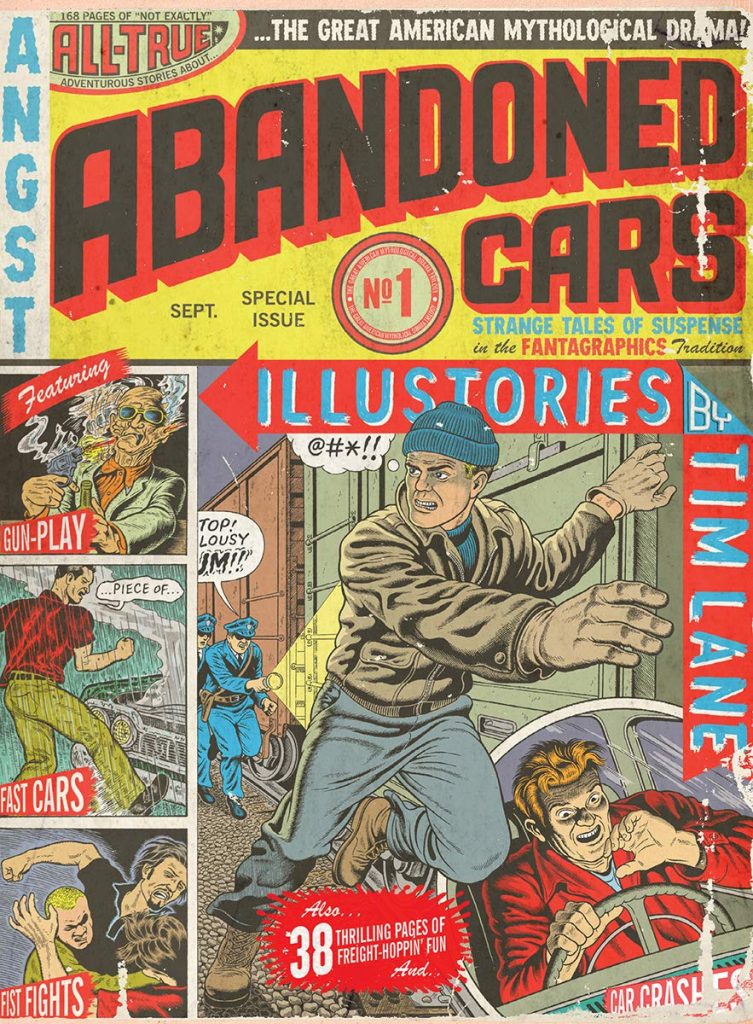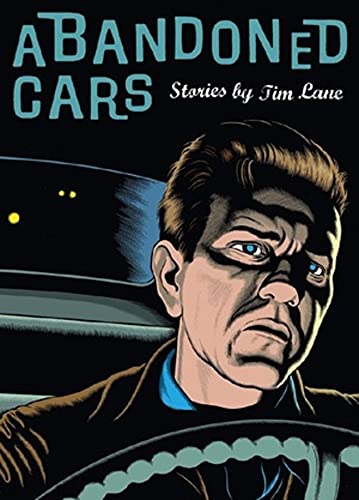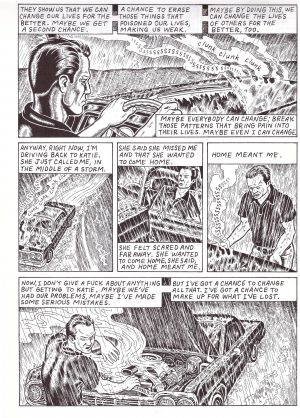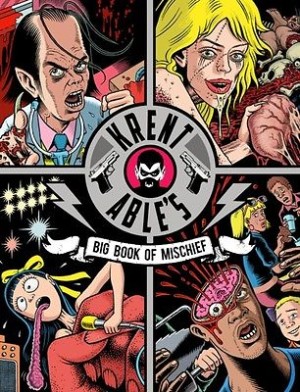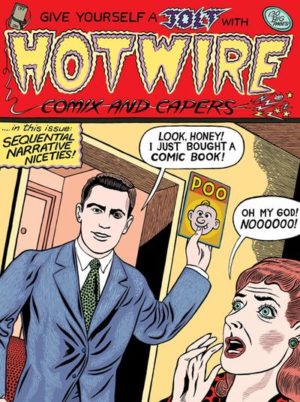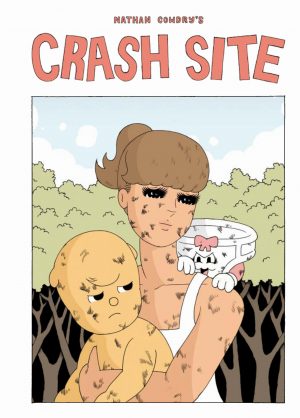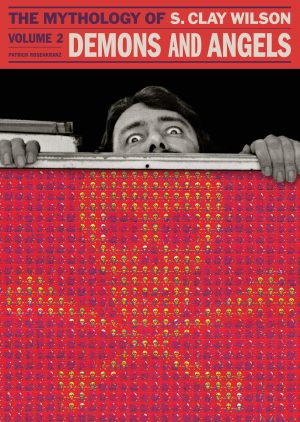Review by Win Wiacek
Tim Lane is a post-war American. His inner landscape is populated with b-Movies, rock’n’roll, junk-memorabilia, big cars with fins, old television shows, Jack Kerouac, the seven ages of Marlon Brando, pulp fictions, young Elvis, distilled Depression-era experiences (all of them from “The Great” to the latest), black and white images on TV, a loss of faith in old values, Mad Avenue propaganda, compromised ideals and frustrated dreams. He calls that oh, so plunderable societal gestalt and psychic landscape “The Great American Mythological Drama”, and in this first collection of his stark, intriguing comic strips he dips deep and concocts his own striking contributions to the Great Double Martini of Life.
Many modern Americans use that shared popular culture to create new paintings and sculptures, but Lane has eschewed the gallery art arena for his explorations, opting instead for the only true American medium of expression, the story, and toils bombastically in its ugly bastard offspring – comics. He draws in stunning black and white, hard-edged, uncompromising and enticingly moody, and these short stories, vignettes, observations and sequential investigations are far from the usual stock of funnies.
Abandoned Cars gathers Lane’s contributions to alternative anthologies between 2003 and 2008, and range from tales of dark, eccentric whimsy (‘American Cut-Out Collectibles’, ‘The Manic-Depressive from Another Planet’ and ‘The Aries Cow’) to philosophically charged musings (‘Ghost Road’, ‘To Be Happy’ and ‘The Drive Home’). Pop cultural pastiches (‘Outing’ and ‘Doo-Wop and Planet Earth’) mix with fascinating autobiography and reportage (‘Spirit’ parts 1-3, ‘In My Dream’ and ‘You Are Here: the Story of Stagger Lee’) and just plain old-fashioned noir-tinted thrillers like ‘Cleveland’ and ‘Sanctuary’.
The book also contains numerous untitled, enigmatic and addictive short pieces, and the most evocative and powerful tale is an all but wordless, two-page rumination on age and loss: ‘Those Were Good Years’. You’d have to be made of stone to be unmoved.
Crafting comics is clearly not a job or hobby for Lane. Serious artists have always struggled to discover greater truths through their creative response to the world, and he has obviously found his instrument in black line on white, and his muse in the shabby, avuncular, boisterous, scary detritus of our everyday, blue-collar communal past. The result is stunning and highly intoxicating.
Questing, introspective, insightful and as desperately inquiring as the young Bob Dylan, with as many questions, even fewer answers and just as much lasting, life-altering entertainment to be derived. Why haven’t you got this book yet?
